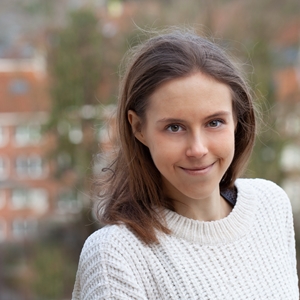project
The integration of sensor technology into incontinence materials: a single-group pretest-posttest study in a nursing home environment
project duration: 01/10/2021 - 30/04/2021
The smart diaper study aims to (1) detect humidity, (2) be capable of sending a real-time indication of the saturation to the healthcare workers when urine loss occurs and (3) generate alerts when the diaper requires changing. Potential benefits of the smart diaper compared to incontinence management products without sensor technology include: workload reduction, increased comfort for residents and staff, more person-centred care, increased quality of care, less skin damage and economic (e.g. fewer costs due to less excessive diaper changes), and/or environmental (e.g. less waste) gains.
promotor

Prof. dr. Dimitri Beeckman
Prof. dr. Dimitri Beeckman holds a BSc. in Nursing, an MSc. in Nursing and Midwifery, an MSc. in Education, and a PhD from Ghent University in Belgium. His doctoral thesis focused on pressure ulcer prevention and management of Incontinence- Associated Dermatitis (IAD). In 2010, he became a lecturer at the Florence Nightingale School of Nursing & Midwifery at Kingās College London in the UK. Currently, he works as a Professor of Skin Integrity and Clinical Nursing at the University Centre of Nursing and Midwifery at Ghent University in Belgium. He is a Visiting Professor at the Faculty of Health and Medical Sciences at the University of Surrey (Guilford, UK) and at the School of Nursing and Midwifery at the Royal College of Surgeons in Ireland (Dublin, Ireland). Prof. Beeckman is Executive Board Member of the European Pressure Ulcer Advisory Panel (EPUAP) and serves as Chair of the Scientific Committee since 2013. He also co- chairs the EPUAP Education Workstream. In 2016, he was a member of the International Scientific Committee of the World Union of Wound Healing Societies Conference. In March 2017, he chaired the 1st European Pressure Ulcer Prevention and Management Masterclass in Ghent. He is specialized in skin integrity research, clinical trials, healthcare education, implementation science and instrument development and validation. In 2013-2014, he authored the Belgian guidelines for pressure ulcer prevention and treatment (supported by the Belgian Healthcare Knowledge Centre, KCE). In 2015, he authored the International Best Practice Document about prevention and management of Incontinence- Associated Dermatitis, published by Wounds International. He acts as policy advisor of the Belgian Federal Public Service Health, Food Chain Safety, and Environment. He authored and co- authored over 80 scientific publications in international peer- reviewed journals. He presented his research in > 50 countries all over the world. He is Consulting Editor of the Journal of Wound, Ostomy and Continence Nursing, the Journal of Tissue Viability, as well as Associate Editor of BMC Geriatrics. Prof. Beeckman holds different Fellowships such as Sigma Theta Tau International Honor Society of Nursing and the European Academy of Nursing Science.
staff members

Charlotte Raepsaet
Charlotte Raepsaet is a PhD student at the University Centre for Nursing and Midwifery, Ghent University (Belgium) and a researcher at the Skin Integrity Research Group (SKINT). She received her bachelor's degree in nursing, specialized in general nursing and intensive careĀ (Vives Brugge, Belgium). Charlotte received her Master of Science in Nursing and Midwifery in 2019 (Ghent University). In November 2019, she started her PhD studies at Ghent University. Her research focuses on skin integrity in vulnerable populations, such as incontinence-associated dermatitis (IAD) in elderly patients, pressure and skin care in end-of-life care. She has experience in conducting systematic reviews, clinical trials and instrument validation.